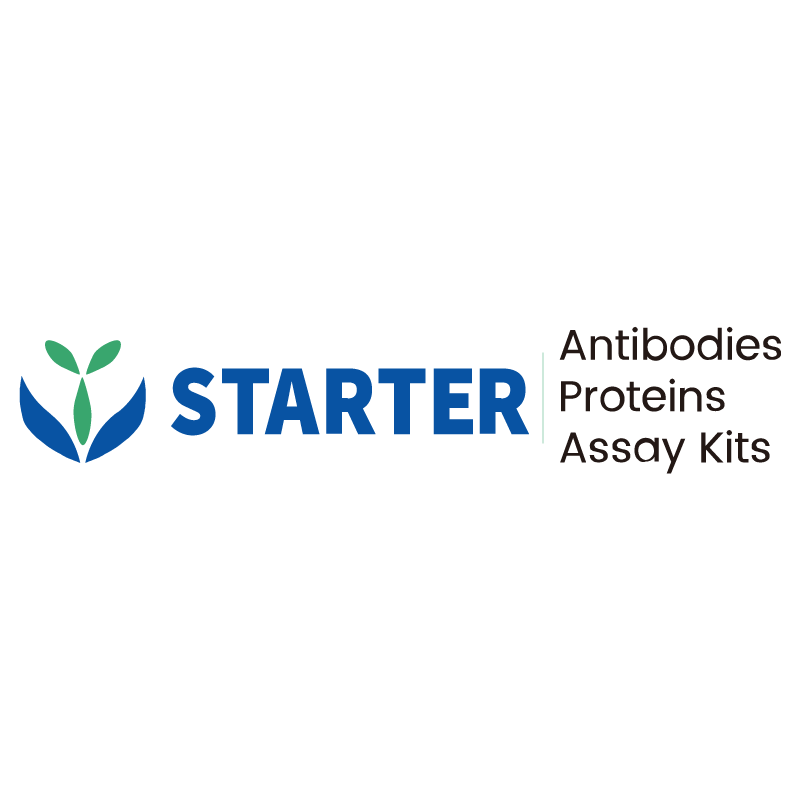WB result of PGC1α Recombinant Rabbit mAb
Primary antibody: PGC1α Recombinant Rabbit mAb at 1/5000 dilution
Lane 1: mouse kidney lysate 20 µg
Lane 2: mouse heart lysate 20 µg
Secondary antibody: Goat Anti-Rabbit IgG, (H+L), HRP conjugated at 1/10000 dilution Predicted MW: 91 kDa
Observed MW: 110 kDa
Product Details
Product Details
Product Specification
| Host | Rabbit |
| Antigen | PGC1α |
| Synonyms | Peroxisome proliferator-activated receptor gamma coactivator 1-alpha; PGC-1-alpha; PPAR-gamma coactivator 1-alpha; PPARGC-1-alpha; PPARGC1A; LEM6; PGC1; PGC1A; PPARGC1 |
| Immunogen | Synthetic Peptide |
| Location | Cytoplasm, Nucleus |
| Accession | Q9UBK2 |
| Clone Number | S-1199-234 |
| Antibody Type | Recombinant mAb |
| Isotype | IgG |
| Application | WB |
| Reactivity | Ms, Rt |
| Positive Sample | mouse kidney, mouse heart, rat kidney, rat heart |
| Predicted Reactivity | Pg, Bv |
| Purification | Protein A |
| Concentration | 0.25 mg/ml |
| Conjugation | Unconjugated |
| Physical Appearance | Liquid |
| Storage Buffer | PBS, 40% Glycerol, 0.05% BSA, 0.03% Proclin 300 |
| Stability & Storage | 12 months from date of receipt / reconstitution, -20 °C as supplied |
Dilution
| application | dilution | species |
| WB | 1:5000 | Ms, Rt |
Background
PGC1α (Peroxisome Proliferator-Activated Receptor Gamma Coactivator 1-alpha) is a transcriptional coactivator that plays a pivotal role in regulating energy metabolism and is implicated in various biological processes. PGC1α acts as a coactivator for several nuclear receptors and transcription factors, enhancing their transcriptional activity. It is involved in the regulation of genes that are crucial for adaptive thermogenesis and energy metabolism. PGC1α coordinates the expression of multiple genes involved in glucose and fatty acid metabolism, playing a significant role in metabolic reprogramming in response to dietary changes. It is also involved in the regulation of circadian rhythms and energy metabolism by activating RORA and RORC, which in turn control the oscillatory expression of clock genes such as ARNTL/BMAL1 and NR1D1. PGC1α has been considered a potential therapeutic target for treating type 2 diabetes, obesity, cardiomyopathy, and other metabolic disorders. PGC1α can suppress cholesterol synthesis and reduce serum cholesterol levels. It upregulates the expression of genes like Insig-1 and Insig-2, which inhibit cholesterol synthesis in cells like HepG2. It also promotes the transformation of cholesterol into bile acids, thereby affecting cholesterol metabolism and serum cholesterol levels. Moreover, PGC1α is a key regulator of mitochondrial biogenesis and function, which is crucial for energy production and cellular metabolism. It is involved in the adaptive response to changes in energy demand and nutrient availability.
Picture
Picture
Western Blot
WB result of PGC1α Recombinant Rabbit mAb
Primary antibody: PGC1α Recombinant Rabbit mAb at 1/5000 dilution
Lane 1: rat kidney lysate 20 µg
Lane 2: rat heart lysate 20 µg
Secondary antibody: Goat Anti-Rabbit IgG, (H+L), HRP conjugated at 1/10000 dilution Predicted MW: 91 kDa
Observed MW: 110 kDa


